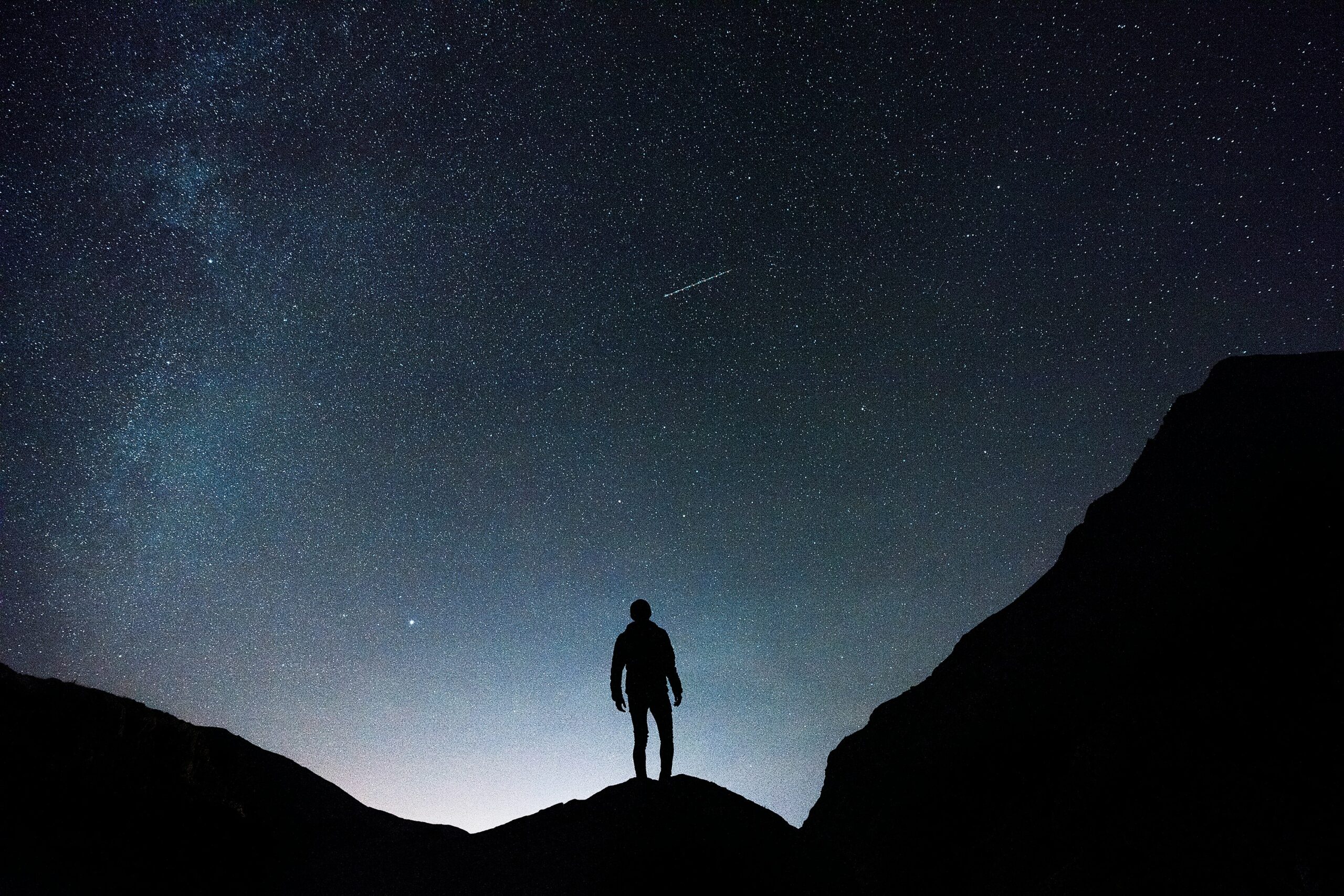Photo by Joshua Earle on Unsplash
There are so many amazing things to see and do in North Wales, it’s hard to cram everything into daylight hours. But there’s plenty to experience after dark too. No we’re not talking nightclubs and bars, in our latest blog we’re talking dark skies; stargazing, in other words! We’re encouraging you to grab your binoculars, pull on your thermals and have a night out with a difference.
We’re really lucky in North Wales to have a Dark Sky Reserve right on our doorstep. Eryri (Snowdonia) National Park was granted official international Dark Sky status by the Dark Sky Institute in 2015 and has been attracting hordes of would-be starspotters ever since.
But what is Dark Sky status? Any location boasting excellent quality night air – clear and unpolluted to afford an unobstructed view of the night sky – has the potential to be considered for this prestigious accolade. Yet, given the dense population of our planet, regions with minimal light pollution are scarce, rendering Dark Sky Reserves rare and cherished sites indeed.
International Dark Sky Reserve, Eryri (Snowdonia) National Park is among only ten locations worldwide bestowed with ‘Dark Sky’ status. It proudly takes its place alongside esteemed counterparts such as the nearby Brecon Beacons National Park and the rather more distant Aoraki Mackenzie Reserve in New Zealand.
Add to that the island of Anglesey, designated an AONB (Area of Outstanding Natural Beauty) by the Welsh government and you have two beautiful areas from which to explore the skyscapes of North Wales by night.
You don’t need to be an experienced astronomer to get the most out of our dark skies. Anyone with an appreciation of our universe – young or young at heart, rookie or pro – can enjoy stargazing.
Getting started with stargazing
Who is stargazing for?
In a word, everyone. Stargazing is a fascinating pastime for the entire family. Provided everyone is snugly attired and well-supplied with snacks, it promises an unforgettable educational encounter for children. Equally, gazing upon the heavenly bodies with your better half can make for an unforgettable date with a difference.
Best time to stargaze
Unsurprisingly, the prime window for stargazing unfolds after nightfall. Optimal visibility is granted on clear evenings, with dry weather enhancing comfort (preferably untainted by preceding rainfall). Since the night sky metamorphoses with the passing seasons, those fortunate enough to revisit North Wales at varying times of the year are encouraged to indulge in multiple stargazing sessions, relishing diverse experiences and perspectives. Generally, the night preceding a full moon offers the most rewarding stargazing opportunities, warranting a glance at the lunar calendar before embarking on your celestial voyage.
Stargazing essentials
To embark on a dark sky adventure, the key ingredient is, of course, stars. Aside from that, there’s no need for overly specialised gear – pack a cosy blanket, a snug coat, provisions (a flask of hot tea never disappoints), and layers aplenty. Even during summer, dusk can usher in chilly temperatures, so don’t skimp on the layers.
Enhancing your experience, a telescope or binoculars can unveil hidden wonders above. Equally indispensable is a portable star map, aiding newcomers in navigating the expanse of the skies. Capturing snapshots of your stargazing escapade will undoubtedly enrich your holiday album, so don’t forget to pack a camera (or ensure your phone is fully charged).
For smartphone users, a plethora of handy apps await, simplifying your stargazing journey. We love Star Walk (iOS) and Google Sky (Android), for guiding you through the midnight landscape with ease. Less technologically reliant but equally invaluable is a compass – perfect for pinpointing specific constellations or lending a hand should you stray off course!
Remember!! For your best chance of seeing stars:
- Seek out nights with a new or crescent moon for the most abundant starry spectacle;
- Select locations with unobstructed views – all suggested sites are ideal choices;
- Begin stargazing no sooner than ninety minutes after sunset;
- Bundle up warmly and pack snacks along with a flask of your preferred hot drink;
- Bring a torch equipped with a red bulb to navigate without disrupting your night vision, facilitating quicker adjustment to the darkness.
Dates for your diary
Welsh Dark Skies Week, 9-18 February 2024 – local walks, talks and workshops cover all things dark skies during Wales’s annual official Dark Skies Week / Wythnos Awyr Dywyll Cymru. For more information and a calendar of events around Snowdonia and Anglesey, click here.
International Dark Skies Week, 2-8 April 2024 – held during the week of the new moon in April, stargazers from across the globe join together to celebrate the night sky above them. To find out more, click here.



